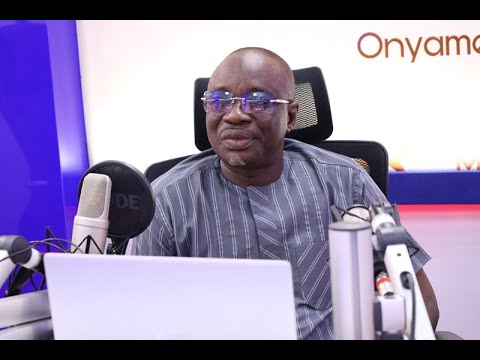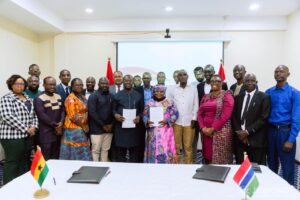Government Spokesperson on Social Services, Yusif Fofana, says the governing New Patriotic Party (NPP) has a sure path to breaking the eight if it garners enough votes from its strongholds—the Eastern and Ashanti regions—in the upcoming December 7 polls.
Specifically, the NPP loyalist said he believes the Ashanti Region remains critical to the party’s success in the upcoming elections.
Yusif Fofana, sharing insights on voter attitudes and campaign strategies during an appearance on Mpensenpensemu, a segment on Original TV’s Adwene Pa show. mentioned that votes from the “Ashanti Region alone can counterbalance those from the Volta Region and six other regions.”
He explained that Vice President Dr. Mahamudu Bawumia has focused heavily on campaigning in the Ashanti Region due to its large voter base and strategic importance.
Yusif Fofana further emphasized that the NPP’s development initiatives, such as the One Village, One Dam project, have significantly influenced voter confidence, especially in the northern regions.
“A single constituency in the northern sector, where people have witnessed these projects, can deliver votes equivalent to 18 constituencies elsewhere.”
These achievements, according to him, contributed to the NPP’s victory in the previous election and are expected to have a similar effect this year.
Addressing concerns about voter apathy, he dismissed the notion that people are losing interest in elections. Instead, he argued that Ghana’s democracy has matured, with citizens becoming more informed and deliberate in their choices.
“This is not voter apathy,” he clarified. “It is democracy at work. People now understand what they want and are making decisions based on policies and performance.”
The NPP, under Dr. Bawumia’s leadership, has adopted a new approach to campaigning. Yusif Fofana described it as an “issue-based campaign” where the party allows its policies and achievements to speak for themselves.
He noted that this strategy has not only enlightened voters but also encouraged them to ask more questions and engage actively in the democratic process.
“It’s about showing what you’ve done and informing the people,” he added.
“Ghanaians are beginning to understand that democracy is not just about words but about results and policies that positively impact their lives.”
Source: Blessing Arthur






